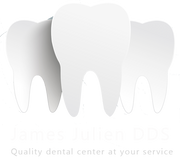
Veneers are a fantastic way to achieve a beautiful smile, but what happens when they come off unexpectedly? In this article, we'll explore the causes behind veneers coming off, what steps you should take if it happens to you, and how to prevent it from occurring in the first place.
What Causes Veneers to Come Off?
Adhesive Failure
One of the primary reasons veneers come off is adhesive failure. Over time, the bonding material can weaken, allowing the veneer to detach from your tooth. This can be caused by factors like age, wear and tear, or poor initial bonding.
Trauma
Accidents or trauma to your mouth, such as a fall or a blow, can dislodge veneers. Even minor incidents can impact the bond between your veneer and natural tooth, leading to detachment.
Tooth Decay
Veneers are typically placed over healthy teeth. However, if the underlying tooth develops decay, it can compromise the adhesive bond and cause the veneer to come off.
Chewing Habits
Excessive force or habits like chewing on ice, pens, or other hard objects can stress your veneers and lead to them coming loose or cracking.
What Should You Do About It?
Contact Your Dentist
The moment you notice your veneer is loose or has come off, reach out to your dentist. They will assess the situation, and determine if the veneer can be reattached, or if a replacement is needed.
Save the Veneer
If your veneer has come off in one piece, save it. Your dentist may be able to re-bond it. If it's broken or damaged, it can still be helpful for reference during the repair or replacement process.
Avoid DIY Fixes
While it might be tempting to try reattaching the veneer yourself with over-the-counter adhesives, it's best to leave this to a dental professional. DIY attempts can lead to complications and further damage.
How Can You Prevent It from Happening?
Choose an Experienced Dentist
Select a reputable and experienced dentist to ensure proper veneer placement. Skillful placement is crucial in preventing future issues.
Regular Check-Ups
Attend regular dental check-ups to monitor the condition of your veneers. Early detection of any issues can prevent major problems.
Practice Good Oral Hygiene
Maintain excellent oral hygiene by brushing and flossing regularly. Use non-abrasive toothpaste and avoid harsh dental products that could weaken the adhesive bond.
Protect Your Teeth
Be mindful of your chewing habits. Avoid biting on hard objects or using your teeth as tools, as this can stress your veneers.
Customized Night Guards
If you tend to grind your teeth at night, discuss a customized night guard with your dentist. This can help protect your veneers from the damaging effects of teeth grinding.
While veneers can provide a stunning smile, they may occasionally require maintenance. Understanding the causes of veneers coming off, knowing what to do when it happens, and following preventive measures can help you enjoy your beautiful smile for years to come. Remember, your dentist is your best ally in addressing veneer issues, so don't hesitate to seek professional assistance when needed.
If you’ve recently experienced any of these symptoms, turn to James Julien, DDS, in Kenai, AK. Dr. Julien and his team will assess your oral condition to determine if you’re exhibiting early signs of gingivitis. If so, they’ll quickly create a treatment plan to prevent it from developing into periodontal disease. For more information about how this dentist can help, visit the website or call (907) 283-4857.
About the Business
(9 reviews)
Have a question? Ask the experts!
Send your question

